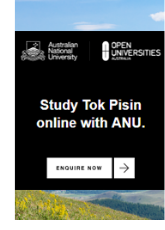Stepping in to help Papua New Guinea field an NRL team would be a massive soft power win for Australia, Hugh Piper writes.
As this week’s news cycle shows, rugby league is no stranger to politics.
The game’s original schism with rugby union itself reflected broader political divides between the working class of England’s north and the middle and upper class in the south. In a similar vein, the game’s most tumultuous period, the ‘Super League War’ of the 1990s, was driven by rivalry between Kerry Packer and Rupert Murdoch’s media empires.
It’s no surprise then that rugby league finds itself back at the centre of politics – this time, in Australian foreign policy.
With the National Rugby League (NRL) marching towards 18 teams, Papua New Guinea (PNG) has again emerged as a contender for a team in the competition.
The PNG Government backs the bid and considerable effort has already been devoted to establishing a club. For rugby league fans everywhere, but especially in PNG, this is good news.
Like everything in professional sport though, economics will ultimately decide what happens next. This is where foreign policy comes in.
With strategic competition in the Pacific heating up, the idea that the Australian Government should subsidise a PNG NRL team has re-emerged. After watching the third State of Origin game at the Pacific Islands Forum with fellow leaders, Prime Minister Anthony Albanese again raised the prospect of a Pacific NRL team.
The Department of Foreign Affairs and Trade (DFAT) already supports sports initiatives in the Pacific through the PacificAusSports program, including funding the PNG Hunters and the Fijian Kaivitia Silktails, both of which participate in semi-professional, second-tier rugby league competitions in Australia.
Across the code divide, the New Zealand Government also provided support to Moana Pasifika, which represented Pacific communities in the Super Rugby Pacific competition.
For Australia, sports diplomacy initiatives are already one element of a broader strategy, which also includes church and cultural partnerships, to boost its soft power in the region. Subsidising sport can help build a diverse web of connections – official, cultural, personal – between Australia and regional partners.
In the case of a PNG NRL team, it would cement existing cultural affinity between Australians and Papuans. Popular support in PNG for an NRL team – backed by Australia – could help ensure that PNG is more likely to align itself with Australia than any other power.
Playing a decisive role in helping PNG realise its NRL aspirations would be a massive soft power win for Australia. To put it in starker terms, a spot in the NRL is something that only Australia can offer PNG. No other country, including China, can play this card.
Of course, these reasons alone may not be sufficient to justify such an investment. The government needs to deeply consider how such a financial commitment might be made and the benefits it might provide.
While the Hunters, Silktails, and Moana Pasifika are precedents, supporting a full scale NRL team would be an endeavour of an altogether different magnitude.
The NRL currently spends about $33 million each year per club in addition to each club’s budget, while the salary cap is $9.4 million in 2022. For comparison, the New Zealand government committed $4.5 to bankroll Moana Pasifika this year.
Without a detailed business case, it is not yet clear how much the Australian Government might have to subsidise. But, at least at first, its contribution would have to be substantial.
Advocates of the team need to lay out a coherent and compelling case for how such an investment would advance economic and social development in PNG and generate greater Australian influence, while also outlining the risks in frank terms.
Australian support for a PNG franchise should also integrate with broader development goals, especially gender equality.
It is welcome news that those involved in the bid are looking to include a PNG women’s team to play in the NRLW as part of its pitch.
Moreover, given the link between sport and domestic violence and high rates of such abuse in PNG, a local team must actively contribute to efforts to prevent gendered violence.
Links to health and wellbeing programs, a clear plan for boosting tourism and improving infrastructure, and strong safeguards against corruption will also be crucial. In short, any bid must show that the broader PNG community, not just the club, will benefit from Australian funding.
The biggest risk is financial viability. Governments are generally comfortable funding clearly defined, time-limited projects, rather than an open-ended business enterprise like a sporting club. Even if initial costs were well-defined, sports franchises are hardly immune to failure.
So, what happens if things go badly and the only thing that will keep the club alive is more Australian money? And what if the franchise is poorly administered or money is mismanaged?
S uch situations would be awkward for the Australian Government. If it pulled support, Australia would be held responsible for stopping top-level rugby league in PNG, winding back any soft power gains. If it keeps paying, it could be accused of wasting taxpayer money.
uch situations would be awkward for the Australian Government. If it pulled support, Australia would be held responsible for stopping top-level rugby league in PNG, winding back any soft power gains. If it keeps paying, it could be accused of wasting taxpayer money.
The nature of the financial support is important too. A one-off, arms-length grant, concessional loans, or an equity stake could all be options, each offering different degrees of control and commitment to the Australian Government over the club.





 The geopolitical economy of sport
The geopolitical economy of sport
 Japan’s year of sport: A soft power sponsorship play?
Japan’s year of sport: A soft power sponsorship play?